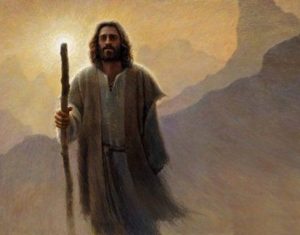Podcast: Play in new window | Download (Duration: 1:55 — 1.4MB) | Embed
Subscribe: Apple Podcasts | Spotify | Amazon Music | Android | Pandora | iHeartRadio | JioSaavn | Podchaser | Gaana | Podcast Index | Email | TuneIn | Deezer | Anghami | RSS | More
Novena del Abandono a la Voluntad de Dios – Día 9

Jesús Nos Dice
Cerrad los ojos y dejaos llevar por la fluida corriente de mi gracia; cerrad los ojos y no pensad en el presente, alejando, del futuro, los pensamientos, igual que lo haríais de la tentación. Reposad en mí, confiad en mi bondad y os prometo por mi amor que si decís “Jesús, ocúpate tu” que yo me ocuparé de todo; yo os consolaré, os liberaré y os guiaré.
O Jesús, yo me entrego a Ti, ¡ocúpate de todo! (Repítelo 10 veces)
Madre, soy tuyo ahora y siempre.
A través de ti y contigo siempre quiero pertenecer completamente a Jesús.
Amén
Para la versión completa en audio de 9 días de la Novena del Abandono a la Voluntad de Dios visite aquí
Esta Novena fue compuesta por el Padre Dolindo Ruotolo (1882-1970) un sacerdote de Nápoles, Italia, para ayudar a quienes la rezan a entender que el Señor quiere que confiemos en Él sin importar cuál sea nuestro problema. Solo podemos elevarnos a este nivel de confianza a través de la gracia de Dios y la ayuda del Espíritu Santo. Debemos dejar de lado nuestros problemas, dejar de preocuparnos y tratar de resolverlos nosotros mismos. Debemos creer, confiar y permitir que nuestro Señor nos rescate de nosotros mismos y suplir nuestros deseos, necesidades y resolver nuestros problemas como solo Él puede. “Jesús, cuídalo tú”, deben ser las primeras palabras que nos vienen a la mente y brotan de nuestros labios.



